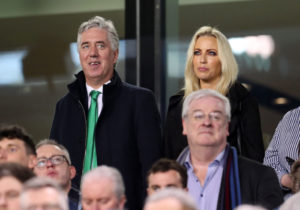This month, it was announced by the Football Association of Ireland (FAI) that season ticket prices for international games have increased, and regular season ticket holders renewing that week were required to pay 50% of the cost upfront within the next four weeks—without any knowledge of the teams Ireland will play next year at the time.
Many fans have slammed the decision, citing the cost of living as a reason not to raise prices. However, the FAI responded by saying, “While the pricing model for the 2025 season ticket has been modified to reflect an increase in overall costs, this is only the second change to the adult pricing model in the last decade for our long-term season ticket holders.”
It is well known that the FAI has money troubles, and this issue will likely persist for some time, but not everyone will be aware of how these financial problems were discovered or how they happened.
Here is a brief rundown and timeline of one of the biggest scandals in Irish sporting history:
Aviva loan development and failure to pay back loan
Between 2007 and 2010, a redevelopment of the Aviva Stadium took place, costing €411 million. The FAI took out a loan for the build, expecting to make the money back through ticket sales and corporate sponsorships. However, this did not happen, as ticket sales and revenue failed to meet expected targets.
John Delaney's role and €100,000 "bridging loan"
Former FAI CEO John Delaney increased expenditure on travel events and salaries. Meanwhile, match attendance and sponsorships continued to fall. Financial pressure mounted on the organisation.
In 2016, Delaney handed the FAI a personal €100,000 "bridging loan" to cover a cash flow issue. This transaction, which should have been disclosed publicly, was not. This was a major red flag.
Concerns and investigations begin
Concerns were raised in 2017, but little was done at the time. There were no significant changes in governance when there should have been.
Internal whistleblowers raised questions about financial management. Auditors and journalists in Ireland began looking into the FAI’s accounts.
 John Delaney former Executive Vice President of the Football Association of Ireland (Photo by Catherine Ivill/Getty Images)
John Delaney former Executive Vice President of the Football Association of Ireland (Photo by Catherine Ivill/Getty Images)What's uncovered
In 2018, Mark Tighe, a journalist for The Sunday Times, began investigating the FAI’s finances. He questioned the organisation’s lack of transparency and raised concerns about Delaney's leadership.
His work led him to uncover Delaney's €100,000 loan. Public outrage followed towards the FAI, and this became the biggest news story in Ireland.
Delaney steps down as CEO but receives new role
In 2019, Delaney stepped down as CEO but was reassigned to a newly created role of Executive Vice President. This move was widely criticised as an attempt to shield him from accountability. Under mounting pressure from media, fans, and politicians, Delaney resigned fully later that year.
What a Oireachtas inquiry finds
In 2020, a Oireachtas inquiry revealed that the FAI owed over €55 million. Further irregularities in financial records and governance were exposed.
What has been done to help the FAI?
The Irish government, UEFA, and Bank of Ireland have since provided a €24 million bailout to prevent the collapse of the FAI. The terms of the bailout stipulate strict conditions for reform.The FAI is required to continue to make reforms to its internal governance structures as well as reviewing and reforming its grassroots leagues at amateur and underage level.
A new leadership team was brought in, and reforms began, including tighter governance rules and improved financial transparency.
The FAI has been working on rebuilding its finances and reputation ever since. Debt repayment has also continued, but the after-effects of the crisis are long-lasting, as seen with the initial ticket price increase mentioned at the top of the story.
This is how the FAI found itself in financial trouble.

